Salma Agha

Subscribe to read full article
This section is for paid subscribers only. Our subscription is only $37/- for one full year.
You get unlimited access to all paid section and features on the website with this subscription.
Not ready for a full subscription?
You can access this article for $2 , and have it saved to your account for one year.
- Born: 29 October 1954 (Karachi, Pakistan)
- Primary Cinema: Hindi
- Parents: Nasreen and Liaqat Gul Agha
- Spouse: Jawed Sheikh, Rahmat Khan, Manzar Shah
- Children: Zahrah S Khan (daughter), Ali Agha Khan (son)
The light-eyed Pakistan-born, London-raised film actress and singer Salma Agha was hailed for her combination of talents that hark back to the glory days of famed singer-actresses such as Noorjehan and Suraiya. Her unusual voice pierced the scene with the memorable song Dil ke armaan from her debut film Nikaah in 1982. In the early days, many thought she was the renowned singer-actress Noor Jehan’s daughter, as the pitch and tonal quality of Agha’s voice quite naturally matched the legendary singer’s. She went on to feature in Hindi as well as Urdu, Punjabi and Pashto language cinema in both the Indian and Pakistani film industries. Besides starring in Muslim social genre films such as Salma (1985), and Pati Patni Aur Tawaif (1990), she also featured in the title roles of female-centric films essaying strong characters as seen in Sherni (1988), Jungle Ki Beti (1988), and Phoolan Devi (1989). Besides winning the Filmfare award for best playback singer for Nikaah, she also won the National award in Pakistan for her song - Ik baar milo humse. As Manish Gaekwad writes in Scroll, “Salma Agha’s acting career was a brief meteoric flare, but her voice has given her an enduring legacy.” This, despite the belief held by many that her voice could not match her beauty.
Born on 29 October 1954 (some sources put her date of birth as 25 October 1965), she was raised in Karachi, Sindh, Pakistan. While her father Liaqat Gul Agha, who traded in carpets and rugs, belonged to an Urdu-speaking Pathan Muslim family based in Amritsar, East Punjab, her mother Nasreen (born Zarina Ghaznavi) was the daughter of Pashtun musician Rafiq Ghaznavi and his Indian cinema actress wife Anwari Bai Begum. Formally trained in the Kirana gharana musical tradition, Zarina wanted to be a classical vocalist but family pressures did not let her fulfill her ambition. She was the leading lady in the famous 1946 film Shah Jehan.
Inspired by her mother who was her inspiration and also her greatest teacher, Agha was groomed and supported in her career by her mother all through. Her own flair for singing became apparent at a young age, as she performed in school festivals and other music programmes. When she was nine, the family would move to London, where she grew up. She cut her first album Jalwa-E-Ghazal when she was around 16 years old. Composed by her mother and where Agha had even written one of the songs herself, the song compositions were quite challenging and in the classical ghazal style.
She and her sister, Sabina, would go on to collaborate on the album Agha: Salma & Sabina Sing The Hits Of Abba In Hindi (1981). Their Hindi covers of hit songs of the popular Swedish group Abba such as Dancing queen (Mitha mazedar), Mamma mia (Toba toba), and Money money money (Hojayegi badnaami) demonstrated the sisters’ vocal prowess and high vocal range. A novel experiment, the album however, did not open the doors to a future in pop music for Agha.
Training in Indian classical music, however, enabled her to learn and master the basic seven notes. Thereafter, she didn’t find it too difficult to switch between diverse musical styles.
She debuted as a playback singer for the little-known romantic drama film Maine Jeena Seekh Liya (1982). The film had her render the song Zara zara tu pyar kar, composed by music director duo Nadeem-Shravan.
he resemblance between her voice and that of famed singer-actress Noorjehan was another plus in her favour. Agha would later emphasise that they sounded similar as both were classically trained with voices more detailed and different in texture from the norm. The resemblance was natural and not deliberate, she would vouch.
Agha’s entry into Hindi films also came via music. She had come from London to Bombay to record a song for a film called Chanakya Chandragupt, which had music by Naushad; unfortunately the film got shelved. Meanwhile, Raj Kapoor, who was a distant cousin of her mother, introduced her to veteran filmmaker B R Chopra.
Auditioning for playback in Chopra’s Talaq Talaq Talaq, the veteran filmmaker asked her if she would act in the film too. Agha would later reveal that she actually always wanted to be a singer and hence she gladly accepted the offer to act in the film when she learnt that she would also get to sing her own songs.
With no previous formal training in acting, she found the ideal mentor in Chopra, who would patiently act out every scene to her. She worked hard on the scenes and dialogues much before shooting could begin, in order to be prepared to face the camera and deliver dialogues running into several pages.
She would make her acting debut in 1982 with the film, which was renamed Nikaah after certain religious sections reportedly took offence to the initial title, which referenced Islam’s triple talaq divorce system.
She played the central character in Chopra’s romantic drama film, which also starred Raj Babbar and Deepak Parashar. A social comment on the Sharia laws of divorce (talaq) and its misuse in Indian Muslim society, the film told the tale of Niloufer, who, after an unsuccessful marriage, gets married to Haider, an editor, and eventually falls in love with him. However, her happiness is short-lived as her ex-husband Wasim re-enters her life.
A high-grossing commercial hit introducing a strong female protagonist, Nikaah was particularly appreciated for its music composed by Ravi. The film would go on to win the Filmfare award for best dialogue as well as the Filmfare award for best female playback singer for Agha. As an article in Moneylife would observe, “It is perplexing why Agha did so few movies (10-12 movies) in her career despite having a marvellous screen presence and reasonable acting potential. Additionally she sang in her own voice and that appeared like a crowning glory to her sensitive portrayal of a harangued Muslim woman torn between the demands made by the sharia law and the whims and fancies of the two men she was married to.” She was also nominated for the Filmfare best actress award for her performance.
Regarding the popular song Dil ke armaan, Agha considered herself fortunate to be assigned such a composition from the senior music director Ravi. Thanks to her classical training, she was quite confident of carrying off the song well, and audiences accepted her voice right from the first song.
Two years later, in a marked contrast to her role in Nikaah, she channeled a disco avatar, starring as the character Neena in Kasam Paida Karne Wale Ki (1984) opposite Mithun Chakraborty, in the Babbar Subhash-directed action drama. The plot revolved around Aarti, who lives with her only son Avinash. When Avinash falls in love and decides to get married, she tells him the truth about his father's death. Agha rendered hit disco songs as well as plaintive melodies in the film including Dance dance (Jhoom jhoom jhoom baba), Come closer, and Jeena bhi kya hai jeena along with Bappi Lahiri. The song Come closer has been sampled in various songs—particularly hip hop—in recent years, including My Life (2006) by Dabrye featuring Showbiz and A.G., The Medicine (2006) by Planet Asia, and The Hitman (Kutmasta Kurt Remix) (2006).
She played the title role in Salma (1985), the romantic drama directed by Ramanand Sagar. Starring alongside Raj Babbar and Farooq Shaikh, she essayed a Banaras-based courtesan for whose affections the two friends compete. She also rendered several songs in the film such as Zindagi tere dar pe fanaa, Aye mere mehboob with Shabbir Kumar, Tarasti hai deedar ko with Anwar, and Shah-e-Madina.
Bhabhi Dian Choorian (1986), the musical drama written and directed by Iqbal Kashmiri, saw her star alongside Jameel Fakhri and Faisal Iqbal in a tale about a happily married couple whose life changes once the husband’s young stepbrother arrives to live with them. She also co-produced the film along with Aziz Jahangiri.
Some of the leading actors she starred opposite include Rajesh Khanna in the family drama Oonche Log (1985); and Feroz Khan in Meet Mere Man Ke (1991). She also worked with major music composers like Laxmikant-Pyarelal, Kalyanji-Anandji, Bappi Lahiri, Khayyam and R D Burman. For the recording of her song Pahla pahla pyaar na bhoole for the film Mazdoor (1983), which was penned by Hassan Kamaal, R D Burman first taught her the tune on the harmonium and then gave her the freedom to sing it the way she felt right.
Barring her initial two hits—Nikaah and Kasam Paida Karne Wale Ki—Agha’s films did not meet with much success. She was evidently not motivated by acting as much as she was by singing. As her distinctly nasal voice was uniquely suited to her alone, playback offers also waned. Turning her attention to ghazals, she produced several albums, including a collaboration with ghazal maestro Mehdi Hassan. Titled Har Pal (1988), one of the remarkable songs on the album is Saans bhi loon.
In 1981, she married Jawed Sheikh, a Pakistani actor, director and producer; they divorced in 1987. In 1989, she married squash player Rahmat Khan. They had two children - Zahrah S Khan and Ali Agha Khan. The marriage ended in 2010. In 2011, she married Manzar Shah, a Dubai-based businessman. Her daughter Zahrah S Khan has acted in films such as Jug Jugg Jeeyo (2022), Bellbottom (2021) and Aurangzeb (2013).
In January 2017, Agha was granted overseas citizenship of India status by the Indian government, which offers her multiple entry, multi-purpose life-long visa to visit India and exemption from reporting to police.
Summing up her approach to life in an interview conducted by Dr Mandar V Bichu, Agha declared, “I have been a rebel all my life and have always done what I wanted to do. I don’t have any regrets. Life is a continuous journey and you take the good with the bad. They say you learn from your mistakes - I don’t believe that! You don’t learn from the old mistakes but rather just go on to commit new mistakes!”
References
http://www.cinemasangeet.com/hindi-film-music/interviews/meeting-salma-agha.html
https://scroll.in/reel/804652/salma-aghas-voice-could-not-match-her-beauty
https://www.moneylife.in/article/nikaah-1982-depicts-an-indian-muslim-womans-predicament/57499.html
https://www.seema.com/everything-you-need-to-know-about-salma-agha/
-
Filmography (7)
SortRole
-
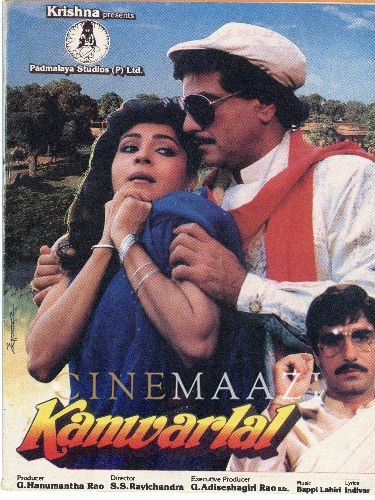
Kanwarlal 1988
-

Mahaveera 1988
-
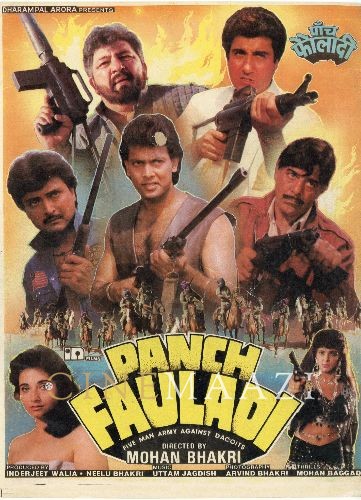
Panch Fauladi 1988
-

Jungal Ki Beti 1987
-
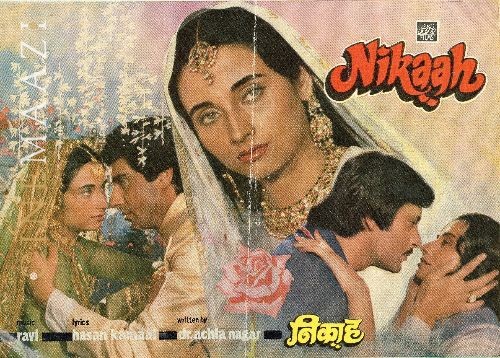
Nikaah 1982






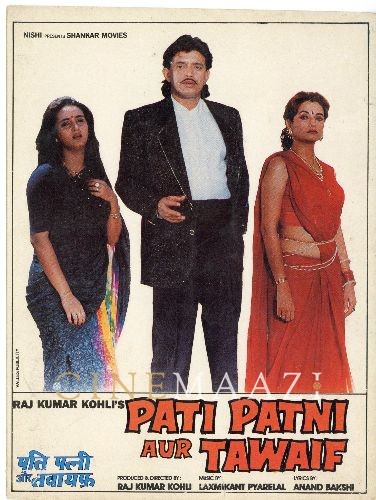
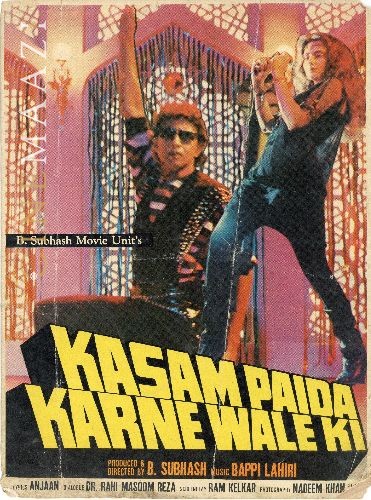

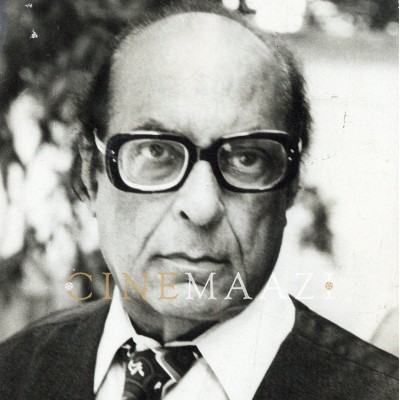


.jpg)



